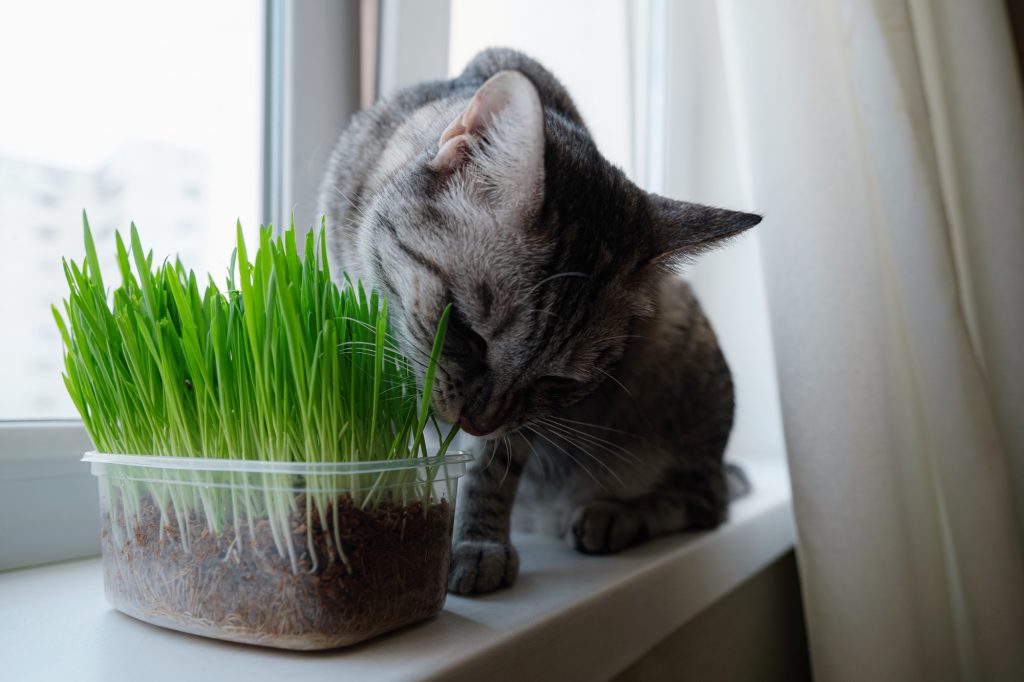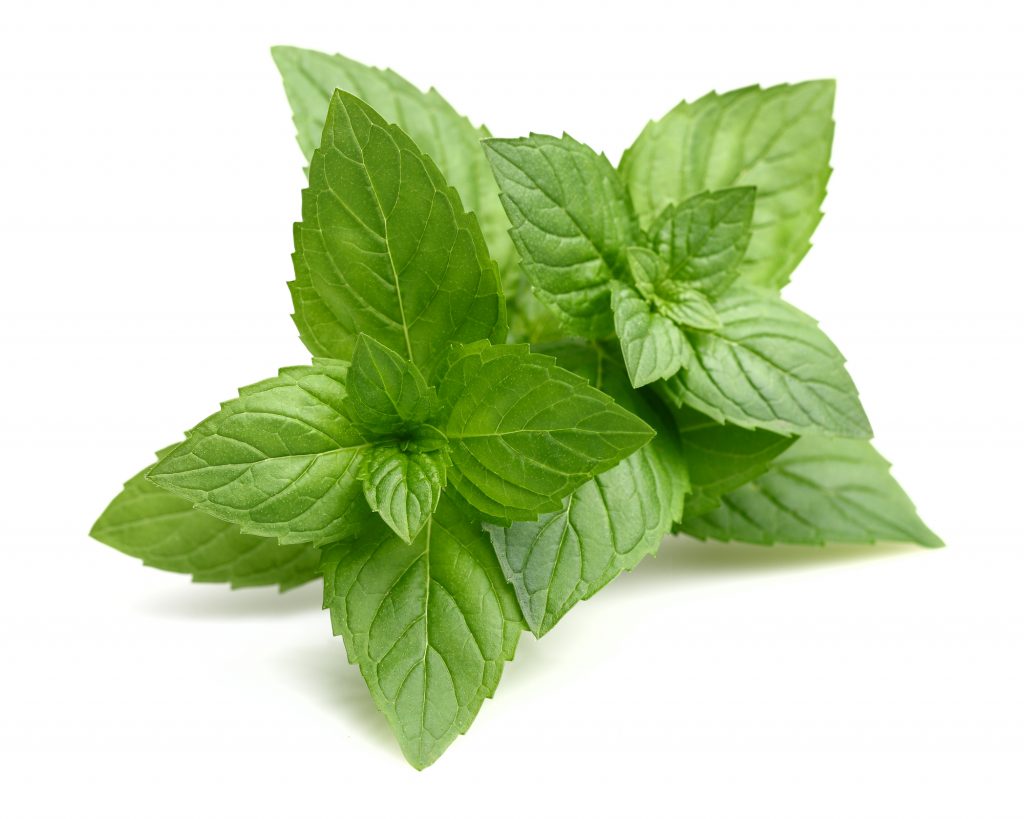As cat owners, we are responsible for making sure our cat eats a healthy diet. This includes keeping them away from things they shouldn’t be eating. There are a number of foods that are harmless to humans that can cause issues for our furry friends.
Some cat owners have wondered, can cats eat mint leaves? This article will answer that question as well as the reasons why.
In Short, Can Cats Eat Mint Leaves?
No, mint leaves aren’t safe for cats. Mint leaves contain several essential oils that are toxic to cats. It’s not only mint leaves that you shouldn’t give to your cat, but also the stems and the flowers.
Usually, your cat will need to consume a larger quantity of mint before it becomes fatal, but it is best to keep them away from mint entirely to be safe.
What Type of Mint Is Safe for Cats?
There is one type of mint that is safe to feed your cat. Catnip!
Catnip, which is also known as catmint, is the only safe mint option for cats. However, some cats that are more sensitive to mint, may not be able to eat catnip either.

To test whether catnip is ok for your individual cat, you should first give a very small portion of it to your cat to try. If you cat doesn’t show in negative reactions, you can try a slightly larger quantity. Keep an eye on your cat for the next 24 and if no reactions appear, you cat can probably consume catnip safely.
Reasons Why Mint Leaves Are Not Safe for Cats
As we previously mentioned, the issue with mint leaves lies in the essential oils that they contain. Below are some of the reasons why mint leaves aren’t safe for cats to eat:
It Can Aggravate the Symptoms of Several Illnesses
The consumption of mint leaves can have devastating effects on cats that suffer from a liver condition, intestine, or bowel disease because it can maximize any pre-existing symptoms of these conditions.
If you cat is already suffering from one of these illnesses, the introduction of mint is too much for your cat’s system to be able handle since it already isn’t as strong as a healthy cat’s system.
It Can Causes Diarrhea
Ingesting large amounts of mint leaves can also cause diarrhea and vomiting. To an already sick cat, this might be severely problematic.
Not to mention that if a cat suffers from diarrhea for a long time, it might lead to weakness, nausea, and more serious side effects.
It Might Trigger a Skin Reaction
It is also possible that your cat may develop a skin allergy if they have been exposed to mint. Many owners sometimes use mint essential oils for themselves, and some owners use essential oils on their pets as well.
Never use a mint essential oil on your cat, and it will likely cause skin irritation. In general, you have to be very careful if you want to use essential oils on your cat, because there are many types of essential oils that are harmful to cats and should be avoided.
It Might Cause an Allergic Reaction
As discussed, there are all kinds of reactions that your cat could experience from ingesting mint. Below are some of the common allergic reactions to look for:
- Diarrhea
- Watery eyes
- Vomiting
- Liver failure or damage
- Skin irritations
- Anaphylaxis
- Dehydration
- Lethargy
It Might Lead to Liver Damage
In some cases, mint leaves can induce an even more serious impact on a cat’s health. Certain mint species, such as pennyroyal, can cause liver failure if a cat consumes it in large amounts.
The reason behind this is that cats lack a particular enzyme in their livers that’s responsible for eliminating toxins such as phenols. As a result, ingesting food that contains phenol, such as mint, will disturb a cat’s stomach.
As you can see, mint in all its various shapes is off-limits to your cat. Eating it as leaves, chocolate mint, or even using its essential oil as a topical skin remedy will do more harm than good for your feline.
What to Do If Your Cat Has Eaten Mint Leaves?
Most likely, if you cat has only eaten a small portion of mint, there is probably nothing to worry about. If you are concerned, definitely contact your vet and they will tell you if there is anything you should do.
However, if you notice any serious symptoms such as diarrhea, vomiting, or weakness, don’t wait, you’ll want to take your cat to the vet immediately!
If your regular vet is not open, there are emergency vets located all across the country, look up the closest one near you and go there ASAP.
The Bottom Line
So, can cats eat mint leaves? Absolutely not! Outside of catnip, which should still be given in small quantities to test for an allergic reaction, mint leaves or any part of the mint plant should never be given to your cat.
If you think your cat has accidentally ingested some mint, watch them for an allergic reaction, and if you aren’t sure how much they have consumed take them to the vet pronto.

